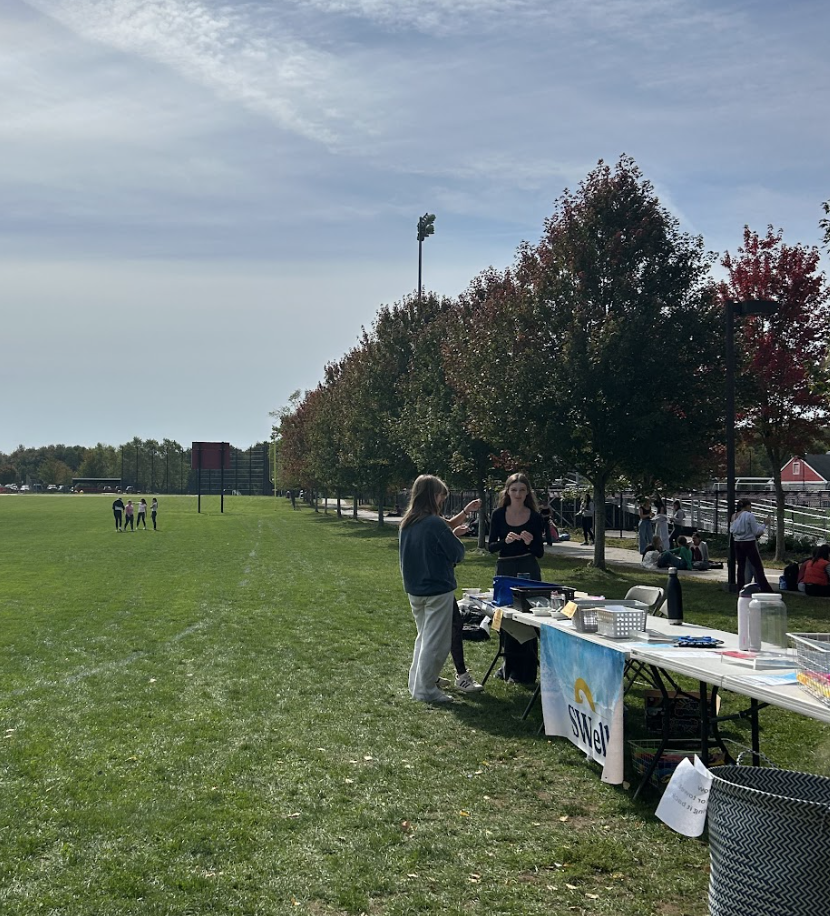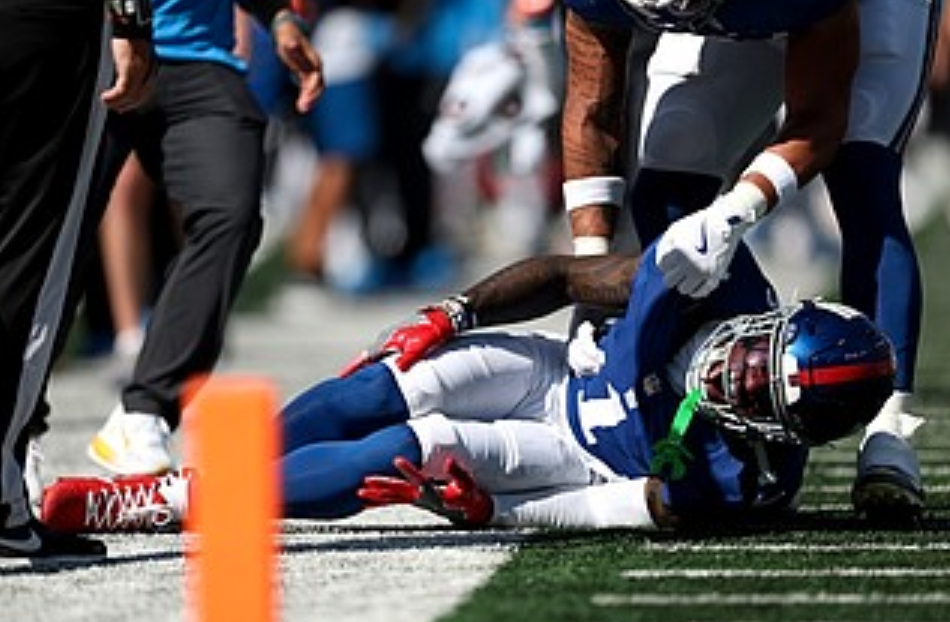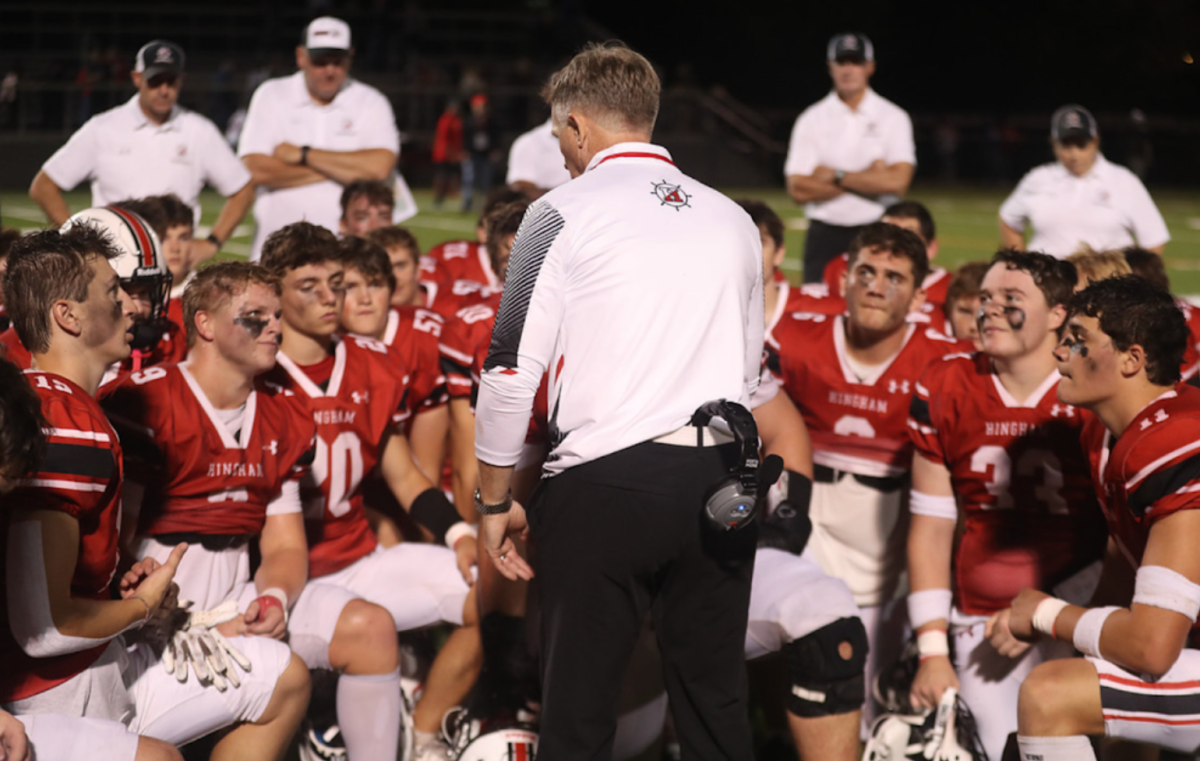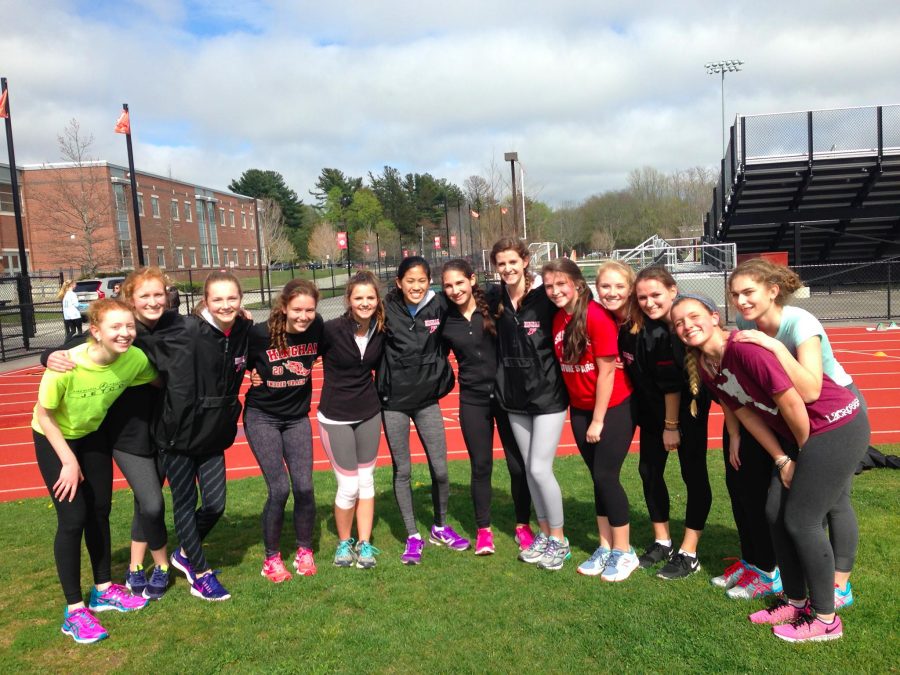School Sport Participation: How Far Is Too Far?
The HHS girls sprinting team is all smiles for the meets next week.
May 8, 2016
With spring sports in full swing, the hectic process of signing up is long since forgotten for most people. There are, however, a few students that are still feeling the pressure to compete.
Some people end up unhappy with the sport they’ve chosen to play, due to being pressured to join a certain sport. Lauren Kourafas, a spring crew captain says, “The pressure doesn’t fall as much on our team, but I find that a source of encouragement comes from the surrounding community.” Lauren believes that we, as a student body, are not the ones responsible for the pressure students feel to play sports but, it is instead our town itself that forces athletics upon us.
Erin Lynch, a senior lacrosse player, feels that she has always grown up with the idea, “that in order to make friends you have to get involved in athletics.” Just by walking around the school one notices the hundreds of posters promoting different sports teams, but there only a rare few that encourage the arts.
Erin thinks that, “People play sports because with sports you can always try something new and practice it. With arts people believe that you have to be born talented and that you can’t learn to be artistic, but that’s not necessarily true.” As a senior, Erin has always heard from the adults in her life that it’s “important to be well rounded” and that “colleges like to see sports on your resume,” but students shouldn’t feel like playing a sport is the only way to get into college.
The stress on students to excel in athletics to get into a good school is an unnecessary evil. An anonymous athlete felt particularly pressured to play a sport this winter, despite sensing that an injury was oncoming. He had also already planned on focusing on the arts this winter instead.
When describing his decision to me he said, “I knew my coach wanted me to do a certain winter sport but I figured my physical health and what I wanted to do was more important.” He had every right choose this path for himself because he should be allowed a freedom with his extra-curricular activities.
However, his coach did not share his beliefs, “I was in the weight room, and my coach just walked in and asked to talk to me. I don’t know how he found me but we talked and he basically told me that the other club I wanted to do didn’t matter.” This student essentially found himself guilted into playing a sport he wasn’t interested in.
In the Hingham High school mission statement it says, “With the support and involvement of the community, Hingham High school will engage all students in a challenging, well-balanced educational program complemented by co-curricular activities.” It feels like the goal our school is trying to reach is crumbling at the seams and that HHS is not complying to their mission statement.

































Brooke Coughlan • May 20, 2016 at 9:28 am
I really enjoyed this article because of how well written it was, also i liked how it didn’t only include people with the same perspective. I thought the regime that “In order to make friends, one would have to be involved with athletics,” wasn’t as conclusive to Hingham as i thought, but now that I think of it, I would agree.
Will Sutton • May 18, 2016 at 9:20 am
I think this argue set forth a very concrete argument. It would be interesting to see if other athletes have felt the same pressures.
As a general note, the whole “well-rounded” thing for college is not very useful for getting into college. There’s a great article on it here: http://blog.prepscholar.com/how-to-get-into-harvard-and-the-ivy-league-by-a-harvard-alum
Catherine Wilk • May 11, 2016 at 9:17 am
I really liked the bias of this article because it presents valid arguments. There are lots of pressures by friends, family, and colleges to be well rounded and play sports growing up- sports influence every aspect of your life whether you like it or not.